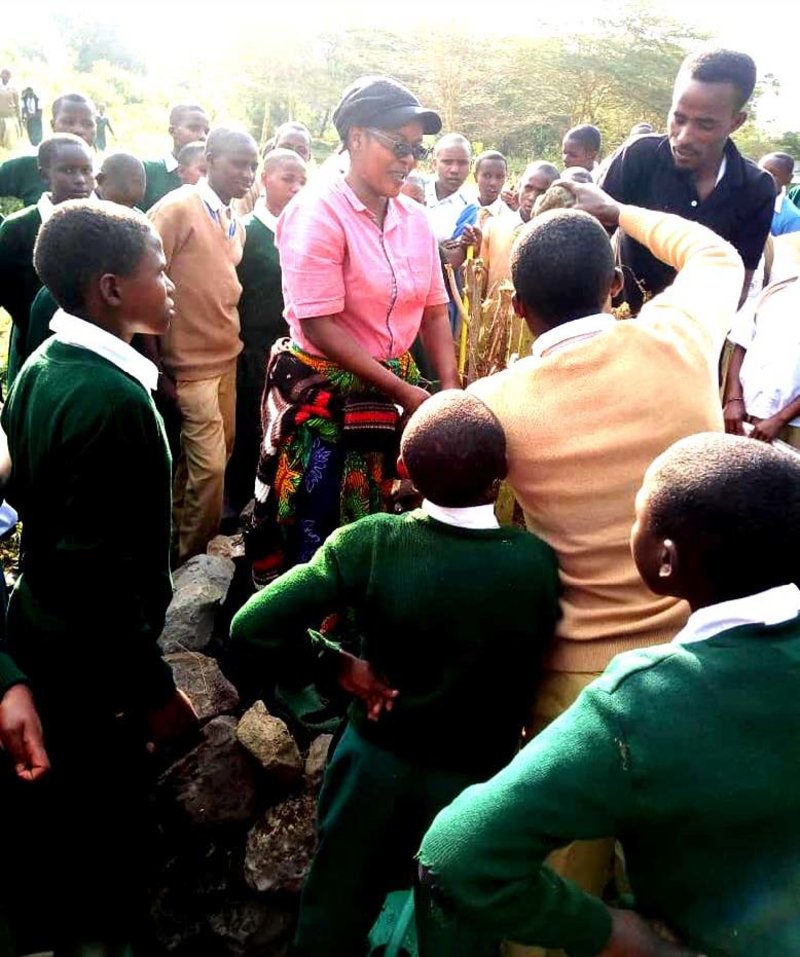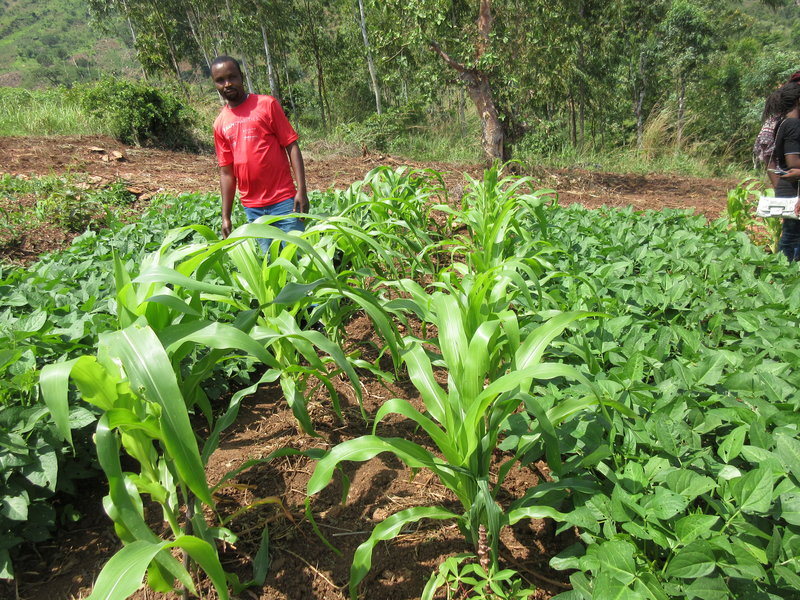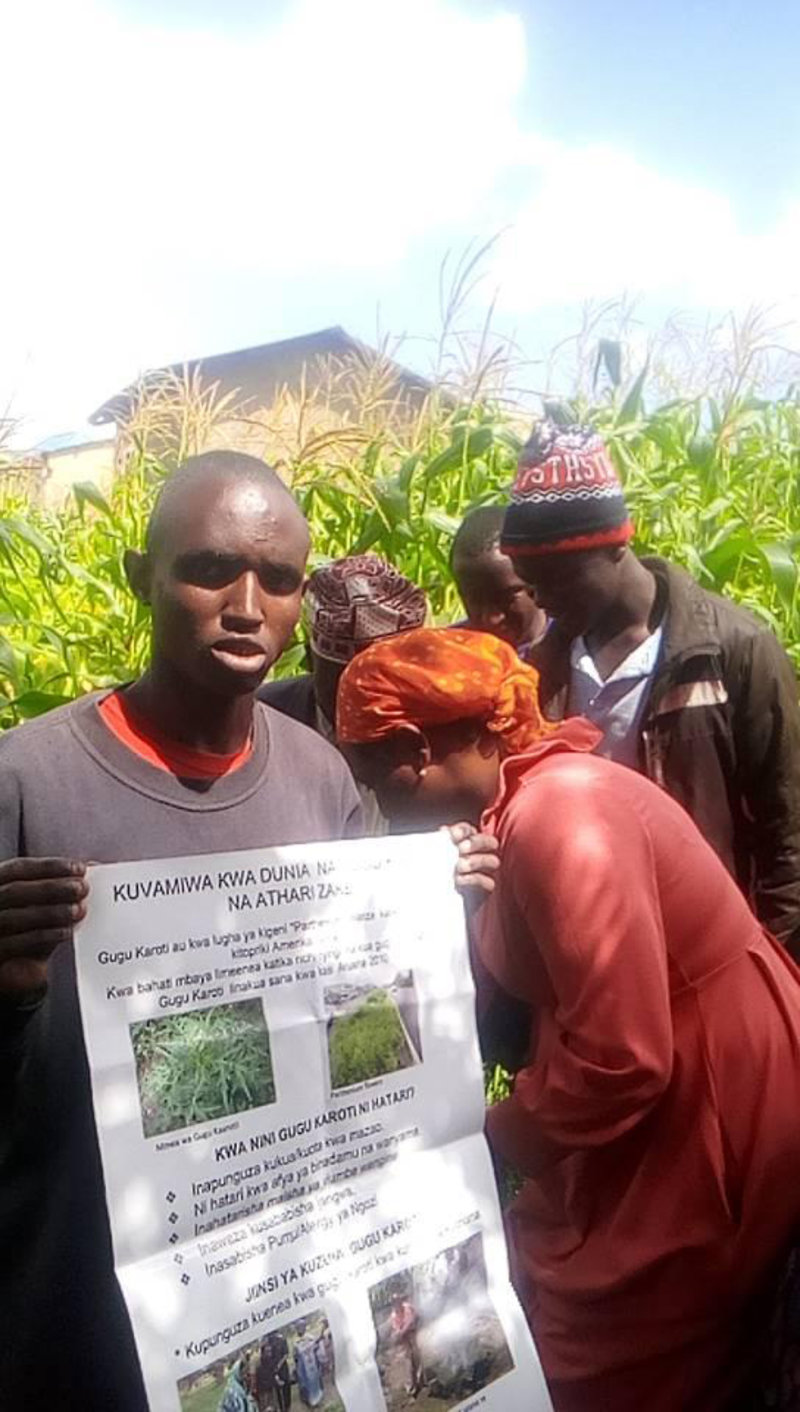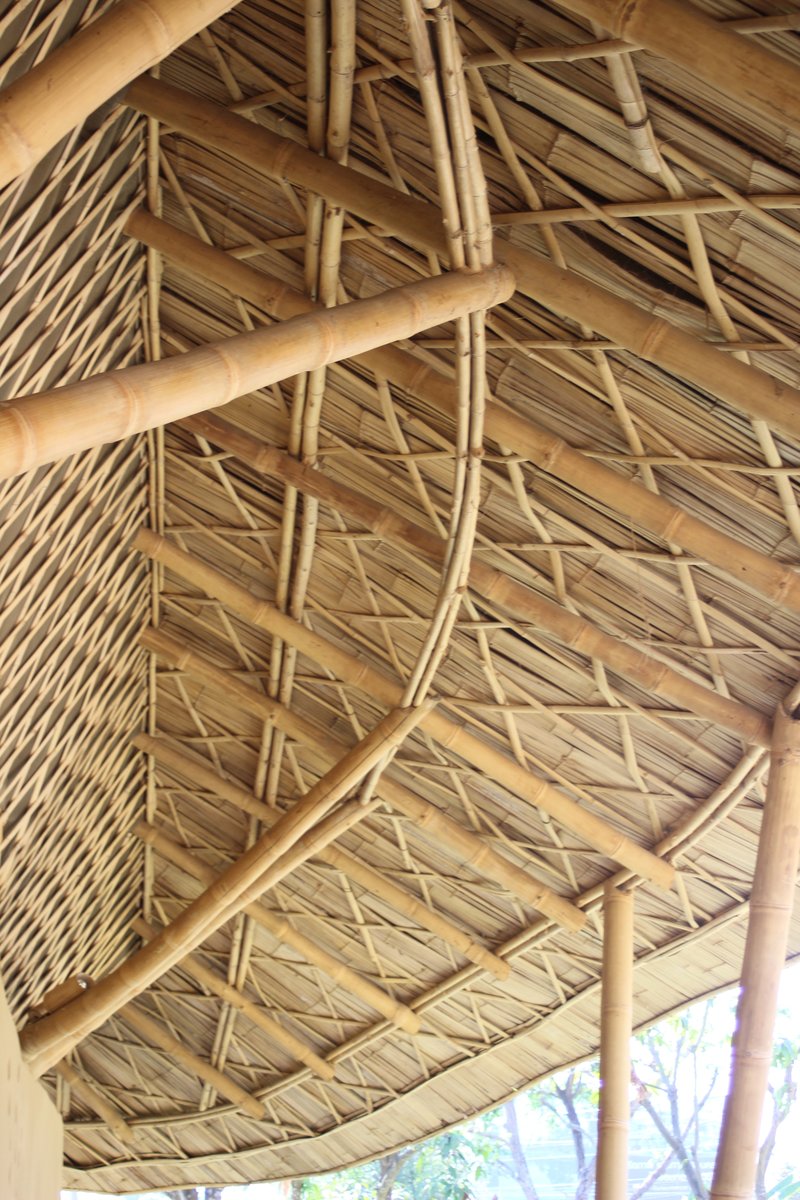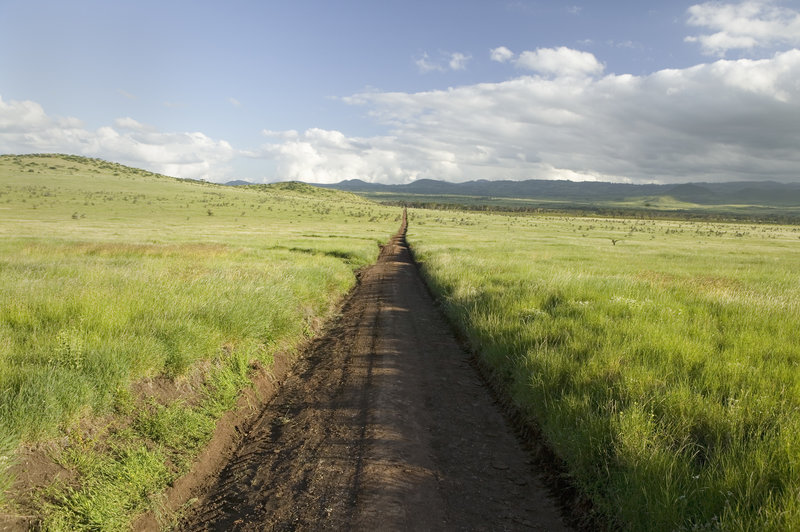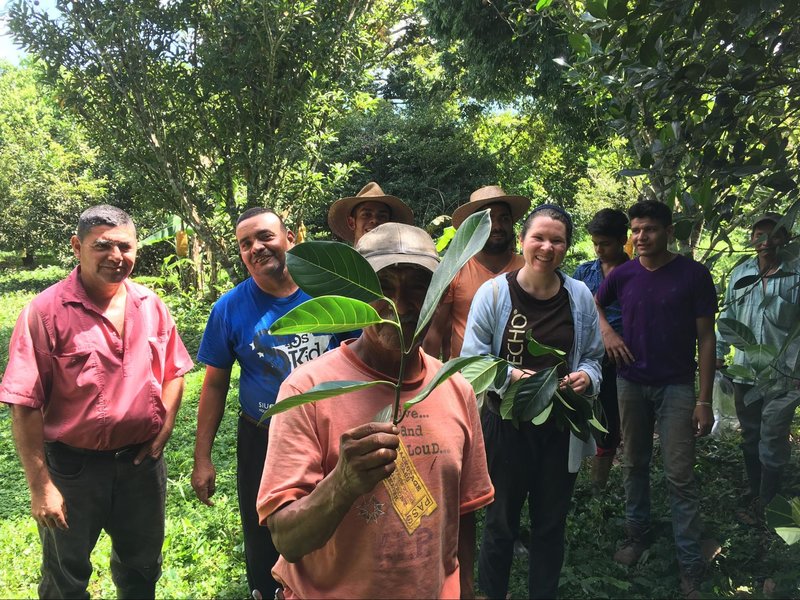Mises à jour de ECHOcommunity
PITA Project Has Opened Our Eyes 2018-08-13
In Meru district where this project is offered, farmers grow bananas and coffee in the highlands, and maize and beans in the lowlands. Many are also involved in small commercial horticulture. They mainly depend on surplus for cash but primarily focus on food crops, growing vegetables for many years for different purposes, especially those areas with good water sources which enable them to water their vegetables even during the dry season. In the past the population was low and there was plenty of land. Now many lack adequate land or water, and self-reliant vegetable production is no longer so easy; many people have sold their land or inherited very small parcels, causing them to be discouraged from gardening. An increase of crop pests, higher costs of inputs, and a mentality that farming is not for aspiring youth has hindered youth engagement in home production of vegetables. In recent years many families struggle with malnutrition in the area.
EDN Issue 140 - Now Available 2018-07-18
In this issue:
- Farmer Field School Trials of 2:4:2 Maize/Legume Intercropping
- Laurel Wilt Disease: "Save the Guac!"
- Echoes from our Network: Metal silos for grain storage
- From ECHO's Seed Bank: Culantro
- Let’s Restore Our Land and Farming for Change curriculum
Farmer Field School Trials of 2:4:2 Maize/Legume Intercropping
By: Tim Motis, Biriori Dieudonne, and Robert Morikawa
Excerpt: Farmers often struggle to maintain the productive capacity of their soils, especially where they lack enough land for a fallow (rest) period between crops. Leguminous green manure/cover crops (GMCCs) can help; in association with rhizobial bacteria, legumes convert nitrogen from the air into a form that plants can use. Many tropical legumes have deep, extensive root systems that can take up nutrients which leach past the root zones of other crops. Thus, even on poor soil, they can produce an abundance of nutrient-rich, plant-based mulch. When left on the field, this mulch builds soil organic matter and fertility. Legumes also help suppress weeds and, depending on the species, produce beans and foliage for human and/or animal consumption. While these benefits are well-recognized, the benefit of GMCCs to small-scale farmers depends on how well they are integrated into smallholder cropping systems (see BPN 7 for information on legume selection and planting strategies).
Restaurons notre terre: Communautaires travaillent ensemble pour restaurer la terre. 2018-06-29
Ce livre explique les aspects importants du développement communautaire, en retraçant la vie des habitants de Katindi en Zambie. Sous la conduite du pasteur Simon, ils analysent, planifient et mettent en œuvre des solutions pratiques aux défis auxquels ils sont confrontés. Divers sujets comprennent l'amélioration des sols, les pépinières d’arbres, la lutte contre l'érosion, la résolution des conflits, la conservation de l'eau et les moyens de subsistance, tout cela dans l’optique de la recherche de consensus, de la coopération et de la gestion. Les chapitres, qui regorgent d'illustrations, peuvent être utilisés dans divers types de rassemblements pour enseigner et favoriser la discussion.
Parthenium Hysterophorus Awareness Project: May 2018-06-15
At the end of May, a few members of the Parthenium Committee visited the village of Bwawani where Parthenium reigns the fields. The area is so devastated with the weed that many farms are engulfed with the weed leaving some farms deserted due to extremely poor yields. The committee met with community members who have experienced all of the negative impacts of Parthenium, some not even able to leave home during the day due to a severe allergy caused by Parthenium.
ECHO Internship Opportunities 2018-06-05
“The ECHO internship has given me a strong foundation for working in agricultural development, providing experience and exposure to a wide range of agricultural principles and practices appropriate for small scale farmers all over the world. Caring for the community garden, shepherding a small flock of sheep, and embracing the wonders of microorganisms to ferment food waste and fish guts into fertilizer are but a few of the many rich experiences of learning and growing that the internship offered. More than this though, what gave meaning to the year I spent at ECHO was the people I shared it with. Together, through challenges and celebrations, goodbyes and hellos, we learned what it means to abide with one another in love, and this ultimately is the most important preparation I could have received.”
Bamboo for Construction - ECHO Technical Note #92 Now Available 2018-05-22
ECHO's latest Technical Note is an in-depth look at how to harvest, preserve, and use bamboo for building construction. Filled with tips on bamboo species, drying techniques, and modern and traditional joinery, this technical note contains helpful pictures of the tools and lashings needed to build lasting structures using this widely available, and sustainable material.
EDN Issue #139 - Now Available 2018-05-08
In this issue:
- Anthropology as a Tool for Facilitating Agricultural Development
- Invasion of the Fall Armyworm
- Echoes from our Network: Millipede Damage after First Rains
- From ECHO's Seed Bank: Passionfruit
Alien Invasions, People-centered development, and the Passion(fruit)
From ECHO's Seed Bank: Purple Passionfruit - Gene Fifer
Passionfruit can take 12 to 18 months to fruit after planting, but patient care will be rewarded with beautiful flowers and tasty, aromatic fruit. Passionfruit is similar in flavor to guava. Its juice is enjoyed on its own or mixed with other tropical juices, and the pulp is used in sauces, gelatin, candies, jams, ice cream, and pastry fillings. The ovoid fruit is 4 to 7 cm in diameter and contains high levels of vitamins A and C.
There are both purple (Passiflora edulis), and yellow (Passiflora ligularis) forms of passionfruit. Both kinds of passionfruit are called by other common names, including granadilla, maracuja peroba, and linmangkon. Purple passionfruit is best suited to subtropical climates, whereas yellow varieties grow best in hotter, more humid tropical climates. Fruits of the purple form, as the name implies, turn dark purple or black when they mature. The skin also wrinkles when the fruit is mature.
Raising Hogs on Banana Silage in Myanmar 2018-04-12
Whether passing through, or invited into the home, it would take a visitor to any number of Myanmar’s Karen communities only a few minutes to realize the importance of agriculture. Small home gardens are common to nearly all households, and may be second only in occurrence to the pig that can be found being raised underneath so many homes. Like many other countries in Southeast Asia, land in Myanmar is as hard to come by as the protein that needs to be produced on it, making hog production a viable and popular source of animal protein.
Being omnivores and efficient consumers of household waste, pigs are well suited for integration into smallholder farming systems where space and resources are limiting factors. But even one or two pigs can become costly to feed and will require, in many cases, expensive purchases of additional off farm feed sources.
New & Notable: Sustained rangeland improvement with special reference to the Laikipia controversies 2018-04-05
I have spent over fifty years working in East African Rangelands studying wildlife in National Parks and ranches or helping pastoralists in northern Kenya and consulting in Tanzania. The situation has changed unpredictably and dramatically since my original research in the Queen Elizabeth National Park in western Uganda. The main change has been rapid and near exponential human population growth with accompanying degradation of the rangelands especially those classified as ASALs (Arid or Semi-Arid Lands). It is not unique to the Greater Horn of Africa, but an example of what has been happening in most countries in Sahelian Africa. A world’s leading expert on deserts concluded over 25 years ago that “all the areas between the 100mm and 300mm isohyets will become man-made deserts in the next 35-70 years if the present trend is not reversed!” (Le Houerou,1991). Further exacerbating the effects of unchecked population growth is that of global warming, where pastoralists are the victims of the rapid increase in the use of fossil fuels by the world’s increased human population.
GUEST POST: The Grass is Greener, but my Tanzanian Grass Has Its Benefits Too 2018-03-29
Reflections of my Time in Guatemala
By: Launa Tanner, ECHO Tropical Mountains Intern
The excessive rains of Izabal, Guatemala, are a stark contrast to the semi-arid climate I am accustomed to in Kitongo, Tanzania. At Frutas Del Mundo Farm in Izabal, I spent many hours digging in the rain, cleaning drainage canals to ensure the water flowed to the river. I observed the importance of planting fruit trees where they have good drainage. A benefit to slopes or mountains is drainage. I visited a farm along the shore of the Rio Dulce where I was shown an obvious difference in growth and health of rambutan trees growing on slopes versus on flat land. This will be beneficial knowledge for my time as the Tropical Mountains Intern at ECHO Florida as it is also a very tropical climate.
